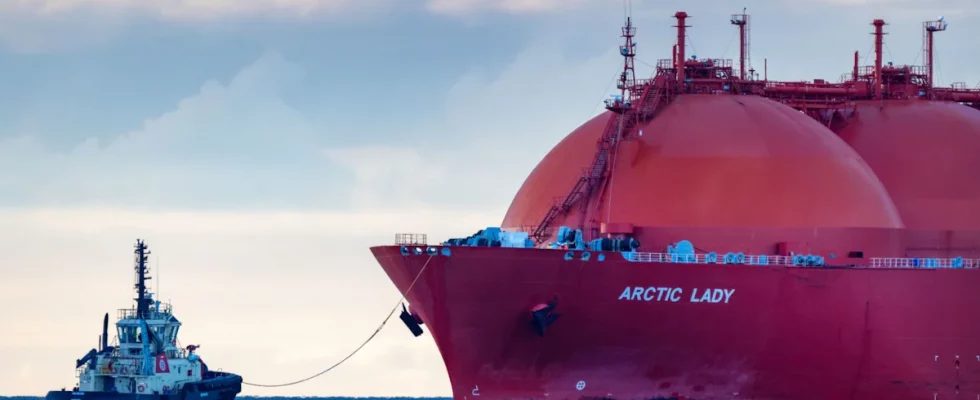More than two years after the start of the Ukraine war, the EU wants to impose punitive measures on the Russian gas sector and thus an important source of Moscow’s income for the first time. According to diplomats, the 14th sanctions package, which the EU Commission is currently negotiating with member states, could affect imports of Russian liquefied natural gas, i.e. so-called liquefied natural gasshort: LNG.
There had already been considerations of banning or restricting the import of LNG from Russia in previous rounds of sanctions. However, the plans always failed due to objections from individual governments. This time, however, the debate is more constructive. It is to be expected that there will be “something about LNG” in the 14th sanctions package, it is said in Brussels.
France has not yet made a clear statement about sanctions
Some countries, including Sweden and Germany, have already spoken out in favor of sanctions against Russian LNG. Other important countries, including Spain and Belgium, in whose ports the tankers carrying Russian liquid gas unload their cargo, have at least signaled their willingness to support restrictions. France, where Russian LNG also arrives, has not yet made a clear statement. However, French President Emmanuel Macron has sharpened his tone towards Russia significantly in recent weeks.
The EU has imposed sanctions on Russian oil and coal exports in the past two years. However, the import of Russian natural gas has not yet been forcibly restricted by the EU, but has been reduced by Moscow itself. For example, in the months after the start of the war, Russia stopped gas deliveries to Germany via the Nord Stream pipeline. According to the Finland-based research institute Center for Research on Energy and Clean Air (CREA), the share of Russian natural gas in EU gas imports fell from 46 percent in 2021 to 16 percent in 2023.
While Russian gas deliveries to the EU via pipelines fell, Russia’s LNG exports to Europe via tankers shot up – by a whopping 36 percent in 2022. This led to the bizarre situation where, last year, Russia was the EU’s second-largest supplier of liquefied natural gas after the USA, while at the same time the Europeans were spending billions to support the Ukrainian army in its fight against the Russian invaders. In 2023, Russia earned more than eight billion euros from LNG sales to Europe, CREA calculates. That roughly corresponds to the amount that Germany plans to spend on military aid for Ukraine this year.
The cost of living for EU citizens should not rise despite the measures
However, diplomats do not expect Europe to impose a blanket import ban on Russian LNG, which, according to CREA, currently accounts for five percent of total gas consumption in the EU. Such a drastic step could drive up gas prices in Europe again and thus the cost of living for citizens. Some EU countries, such as Austria, still rely on Russian gas. Instead, the EU Commission apparently wants to impose sanctions on individual LNG projects in Russia, including new production facilities and loading terminals.
Above all, the EU Commission wants to ban the transshipment and re-export of Russian LNG in European ports. A large part of the liquid gas from Russia is not fed into the EU gas network, but is simply reloaded in Belgium, Spain and France and transported on to China, India and other countries. European ports are therefore gateways for Moscow to export gas to Asia, and Europe is thus helping to finance the war in Ukraine. Proposals on how Brussels wants to stop this are expected in the next few days.

